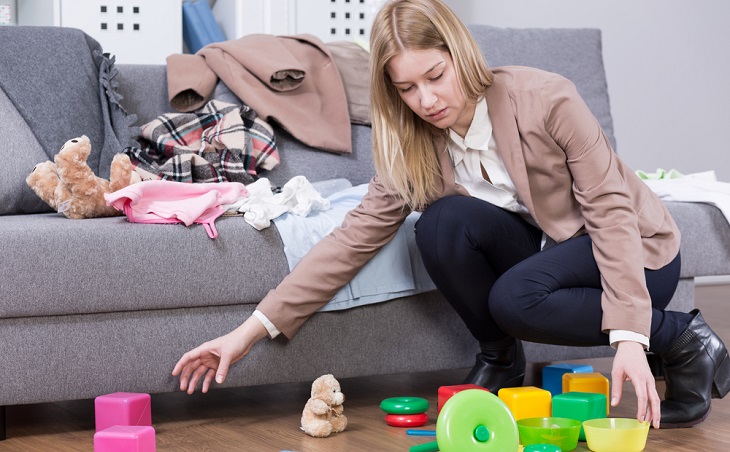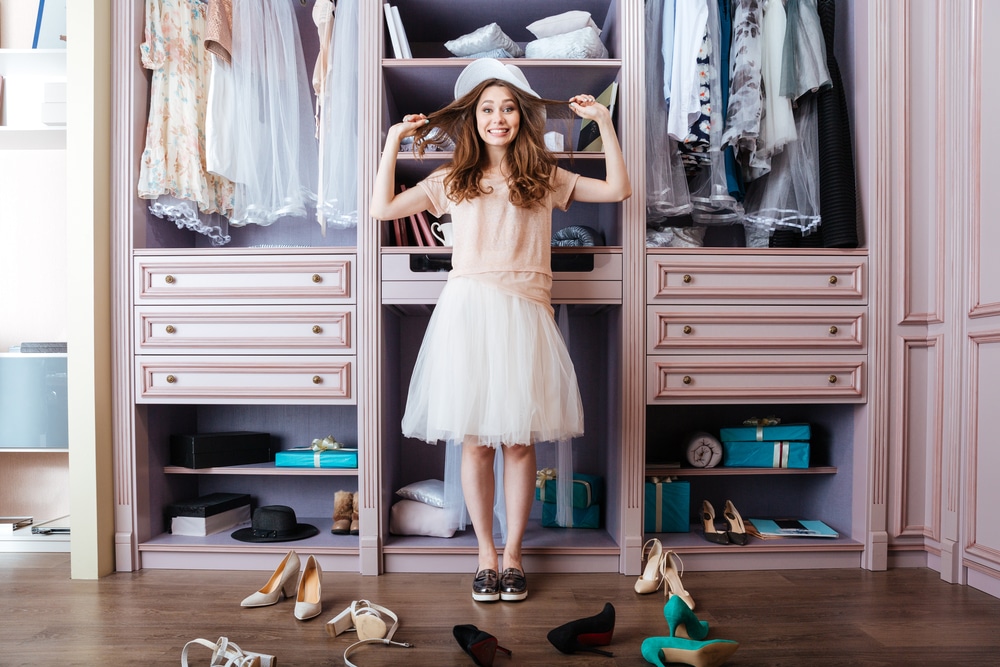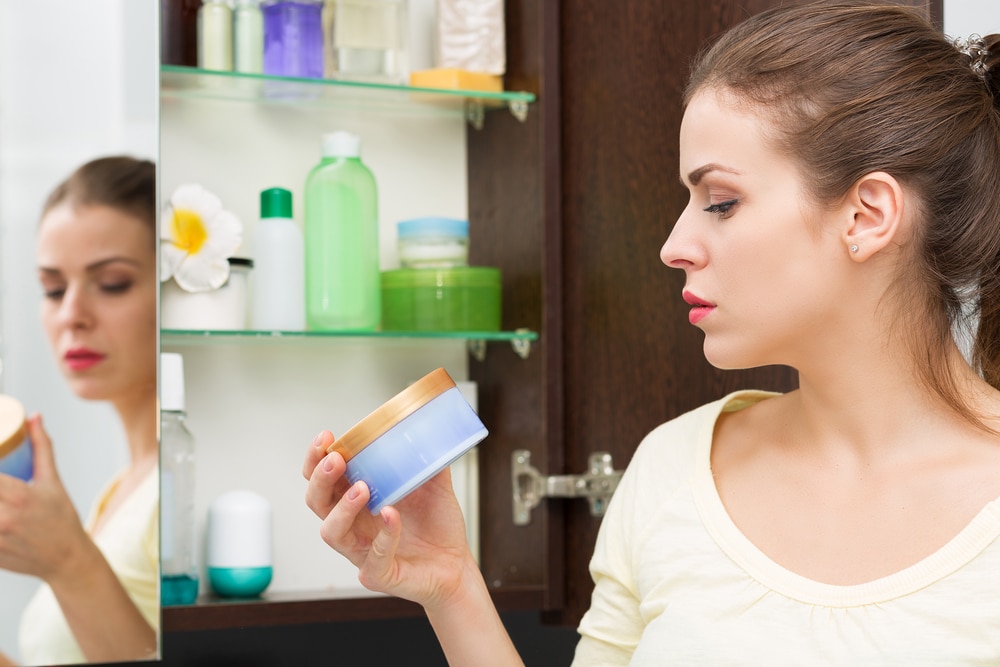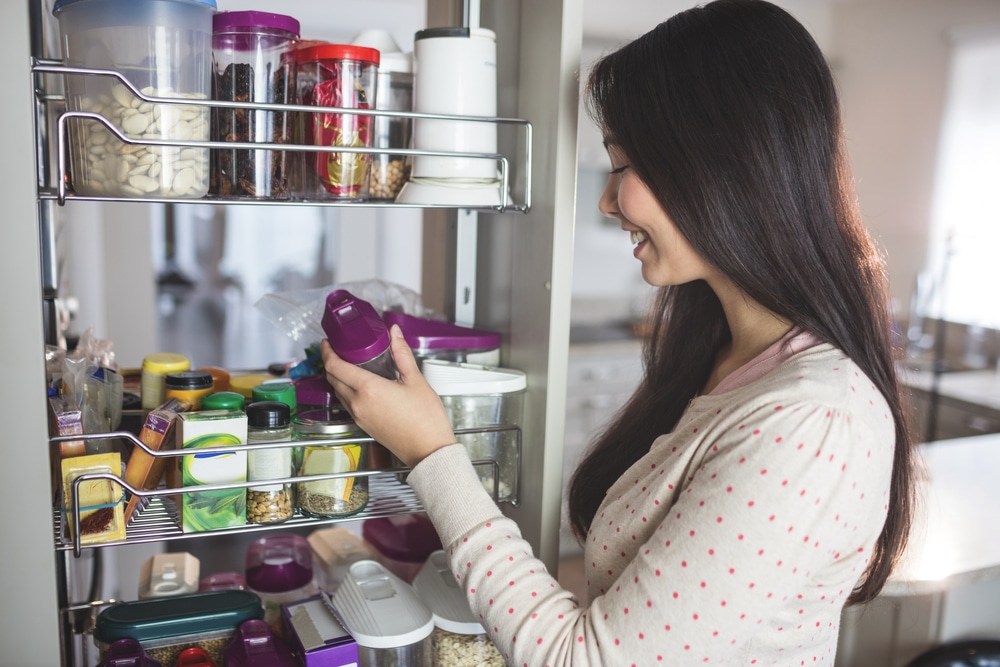I Want To Be Organised – A Home Decluttering Guide

A guest post by Harriet Griffey.
Clutter can creep up on the best of us, and irrespective of your organisational personality and style, a bit of spring cleaning and organisation never goes amiss. Why is it important? Because life is easier and less stressful if you aren’t having to constantly navigate clutter. Get organised!
What are the benefits?
- You’ll save time because you won’t be endlessly looking for lost items
- And this will give you more time for the things you want to do
- You will also save money by knowing what you need and only buying those items
- You will feel less stressed by living in a clutter-free environment
Working room by room, here are some tips to help you live a more organised and clutter-free life:
Living room
The clue is in the name – your living room is where you spend a lot of time, and it’s often where you also work, eat and socialise with family and friends. It may also be where you watch television, or listen to music, and somewhere that you want to relax and chill out.
A living room can be so multi-purpose that it can also be a room in which everything gets dumped. It can quickly become cluttered and disorganised.
TOP TIPS FOR KEEPING YOUR Living Room ORGANISED INCLUDE:
- Keep seats and sofas clear: don’t use these to dump clothes, coats, papers or books, otherwise you will have nowhere to sit.
- Keep a basket in which you can gather up anything that finds its way into the living room that doesn’t belong there – shoes, books, children’s toys, read newspapers – that can be redistributed, recycled or dumped once a day.
- Avoid keeping piles of things on the floor – keep floor space clear – and this may mean rethinking rugs or other floor coverings that need constant straightening.
- Regularly cull shelves of books, ornaments, photographs, etc. – reduce, re-use, recycle – to keep surfaces clutter free.
- Assess your storage: maybe adding a simple bookshelf or closet would enable you to keep your living room better organised.
- Do a quick, five minutes’ tidy up – empty rubbish bins, straighten any cushions or throws, replace books on shelves, discard dying flowers, stack DVDs, throw out newspapers – for an immediately tidier feel. Get into the habit of doing this before bed and it will help start your day in a more organised fashion.
“One way of de-cluttering your monthly outgoings is to switch internet providers. Many consumers sign up to ‘broadband bundles’ and end up paying for a landline and television package that goes unused. If you don’t use your home-phone to make calls and watch most of your favourite shows on Netflix, doing away with ‘bundles’ and opting for a broadband only package can help de-clutter your bills and save you money.” Bridget Lorimer, Head of Brand and Consumer Marketing – Relish
Bedroom
We spend around a third of our lifetime asleep, so the bedroom fulfils an important role in our lives. And, because this is where we go to sleep and restore our minds and bodies, it should ideally be a place of calm and relaxation. It’s also a place where we usually store our clothes and this is often the cause of a lot of bedroom clutter, making it resemble a jumble sale.
So, after having a good sort out and throwing out or recycling unworn items to a charity shop, take a good look at your storage space and start to organise.
TOP TIPS FOR KEEPING YOUR Bedroom ORGANISED INCLUDE:
- Use decent hangers on which you can hang coats, jackets, dresses, blouses and shirts, along with trousers [pants] and skirts.
- Group clothes together by type – ie. all dresses or shirts together – colour coded, or by season: find a system to organise your clothes that works for you, and use it.
- If you have separate storage for off-season clothes, use it – ditto, shoes – but don’t keep anything you haven’t worn for over a year.
- Fold and store t-shirts, jumpers and other knitwear on a shelf or in a drawer, rather than on hangers: they take up less space and keep their shape better.
- Keep all underwear in one section; socks in another; for easy access.
- If you have a dresser, or chest of drawers, keep each drawer or section for one group of clothing items [see above].
- Repair and clean clothes, if necessary, before you need to wear them, and keep a small sewing set in your closet for this purpose [ones given away free in hotels can be used for this].
- Check regularly for moths that can damage natural fabrics: store clothes with cedar wood moth repellent balls or lavender to protect them.
“You can still make a difference by tidying in small bursts. Having suitable storage solutions will present a sense of order and facilitate an efficient and organised home.” Darryl Brunt, UK Sales & Marketing Director at Fellowes UK
How to Tackle Your Clutter – Expert Advice from APDO
Check out this video from last year’s successful Clear Your Clutter campaign. Jasmine Birtles interviews Katherine Blackler, Head of Partnership Liaison at the Association for Professional Declutterers and Organisers (APDO) on behalf of Clear Your Clutter Day 2017
https://youtu.be/Ni8SPla7yI4
Bathroom
Keeping your bathroom clutter-free may feel like the equivalent of painting the proverbial Forth Bridge in Scotland – once you’ve got it done, it’s time to do it all over again. So the main aim in a bathroom is to think about how to streamline those jobs that constantly need doing again and again [and again!] to keep it organised.
Bathrooms can get over populated with multiple products, especially if different family members want to use different items. You can easily end up with a multitude of shampoos, shower gels, facial scrubs, etc. that clutter up bathroom surfaces.
TOP TIPS FOR KEEPING YOUR Bathroom ORGANISED INCLUDE:
- As a general rule, store anything that isn’t used on a daily basis, leaving out only those products you use daily.
- And use up items rather than having endless half empty bottles.
- Regularly cull the products that have expired or been unused, and get rid of unnecessary packaging.
- Use drawer or shelf dividers for beauty products that are smaller in size and can get muddled and damaged if dumped altogether.
- If space is in short supply, use an over-the-door shoe holder in which you can store items not in everyday use.
- And use over-the-door hooks for hanging dressing gowns and other clothes as you undress.
- Keep a laundry bin in the bathroom, even if only small [it could double as a seat] in which dirty clothes can be immediately discarded, rather than left on the floor.
Kitchen
Whether you have a small galley kitchen or a huge kitchen dining room, the principles of a kitchen’s use remain the same: here is where you store, prepare and cook the meals you eat, and clean and wash up afterwards: so a kitchen’s primary function is to fulfill that role.
When it comes to basic organisation in a kitchen, you need easy-to-clean surfaces, space to work, and room to store kitchen equipment and utensils when not in use. The other requirement for a kitchen, of all the rooms in your home, is that it should be safe – not just in terms of food hygiene, but also for personal safety as you will be storing and working with sharp implements and also hot, sometimes boiling, substances.
Top tips for keeping your kitchen organised include:
Once a day
Wash up and wipe all surfaces clean – if you keep pets you may want to use an anti-bacterial cleaner, otherwise hot, soapy water is sufficient for most germs.
Rinse and wring out dishcloths – avoid leaving them in a sopping wet heap to harbour germs (and smell horrible!).
Every few days
Wash tea towels and drying up cloths in a 60° wash: they tend to stay damp for a while, providing good breeding grounds for germs – if you dry the cloths in sunshine, the ultraviolet light will kill off any residual bugs.
Once a week
Check the fridge for any out-of-date foods, cooked or uncooked. Wipe fridge shelves and clean the salad drawer with a solution of bicarbonate of soda [buy it in bulk from a chemist and it’s a cheap, safe kitchen cleanser] – one tablespoon to two pints of warm water – a deodoriser that cuts through grease and helps reduce smells.
Once every six months
Check out-of-date, or coming up to out-of-date, products and items – make sure you use up what’s coming to the end of its shelf life first.
Once a year
Go through utensils and recycle or throw out anything you haven’t used for a year, anything broken or duplicated.
Find out how to get involved in National Clear Your Clutter Day 2018









